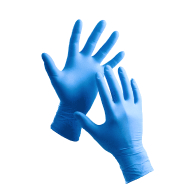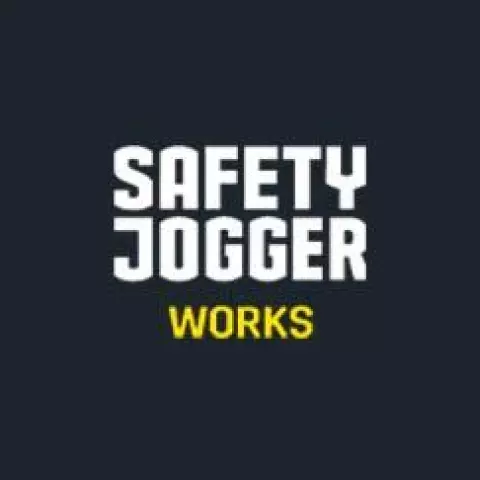Safety Jogger PROSHIELD SINGLE Gloves
Product description
Cut resistant HPPE (high performance polyethylene) glove with polyurethane coating
TSF-Touchscreen function
ANSI/ISEA 105:2016, EN ISO 21420:2020, EN 388:2016
Indicates the knit density of the glove, affecting dexterity and protection level. Higher numbers offer better finger sensitivity for precision tasks.
Defines how the glove secures at the wrist, affecting comfort, debris protection, and ease of donning/removal. Options vary in security and coverage.
Suited for diverse tasks, offering reliable cut protection without sacrificing dexterity. Balances safety and flexibility for various applications.
Flexible knit gloves offer dexterity and comfort. Their construction provides a snug fit, enhancing grip and breathability for extended wear.
Offers enhanced dexterity and tactile sensitivity, while providing cut resistance to the palm and hand. Ideal where precision is needed.
Enables seamless interaction with touch screen devices without removing gloves. Maintains productivity and protection in tech-integrated work settings.
Indicates the glove's visual appearance, which may signify specific applications, enable color-coding systems, or enhance visibility in work environments.
Identifies the material applied to the glove's exterior that enhances grip, chemical resistance, and durability while complementing the cut-resistant core material.
The inner fabric that contacts the skin, affecting comfort, breathability, and moisture management during extended wear in hazardous environments.
Defines the surface texture on palms and fingers that enhances handling ability in various conditions, from smooth for precision to textured for wet environments.
Refers to how glove sections are joined together. Seamless designs eliminate weak points for consistent protection and improved comfort during extended wear.
Specifies the material used in the glove's palm area, affecting cut resistance, grip quality, dexterity, and comfort during handling tasks.
- Cut Resistant
- Hand Protection
Request a free sample
Test first and buy later. Visit any product page to request your free sample.
Standards and labels
EN 388:2016 is a European standard for measuring the performance of protective gloves against mechanical risks (abrasion, cut, tear, and puncture). The standard includes test methods and performance requirements for gloves to be considered compliant. Test results are reported using a series of four numbers, each representing the performance level achieved in one of the tests.
Test results
Tear Resistance Level 4EN 388:2016 is a European standard that establishes criteria for assessing the protection provided by gloves against mechanical hazards, including tear resistance. The Tear Resistance Level 4 classification represents the highest level of tear resistance defined by this standard, indicating that the gloves can withstand the most substantial forces before tearing. According to the testing methodology, gloves are evaluated by measuring the force required to tear a sample of the glove material, with Level 4 requiring a force of over 75 Newtons to initiate and propagate a tear. This high level of tear resistance is ideal for use in environments where gloves are subjected to significant stress and potential damage, such as in heavy industry, construction, and handling of materials with sharp edges. Gloves achieving this level offer superior durability and are essential for ensuring user safety in high-risk mechanical settings, thereby enhancing work efficiency and reducing the frequency of glove replacement.
Puncture Resistance Level 2The standard EN 388:2016 includes an assessment of Puncture Resistance, where Level 2 signifies that the material has met specific criteria for resistance against puncture. The result of Level 2 in puncture resistance means that the protective glove or material can withstand a force of 60 to 100 newtons before being punctured. The test method used involves using a standardized steel puncture probe that is pushed against the material at a specified speed until it pierces through it. In essence, achieving a Level 2 puncture resistance under EN 388:2006 suggests that the protective equipment offers moderate protection against punctures, making it suitable for environments where there is a risk of encountering sharp objects such as needles, but are not excessively sharp or exert very high force.
Cut Resistance, ISO 13997 Level FThe EN ISO 13997 cut resistance test, stipulated in the standard EN 388:2016, includes Level F in its rating which represents a force greater than 30 Newtons before the material is penetrated by a blade. Level F indicates excellent performance in terms of resistance to cutting, protecting against extremely sharp objects. This test is conducted using a TDM machine where a single-use straight edge blade is drawn just once across the material in a linear direction until it cuts through. The force required to penetrate the material is then measured and recorded. In practical applications, Level F cut-resistant gloves are suitable for high-risk environments such as heavy metal stamping, waste management, and glass handling, where handling extremely sharp objects and materials is common. Gloves meeting this high standard of cut resistance ensure maximum protection and durability under severe conditions.
Abrasion Resistance Level 4EN 388:2016 uses a specific test method to measure abrasion resistance of safety gloves; the gloves’ material is subjected to sandpaper under pressure to observe the number of cycles needed to wear through the material. Level 4 in this standard indicates that the material withstood 8,000 cycles before a hole was made. Practically, this means that gloves rated at Level 4 for abrasion resistance offer very high resilience against wearing through, making them suitable for tasks involving significant contact with rough surfaces .
Test results
General Requirements GuideEN ISO 21420:2020 is a standard that outlines general requirements and guidelines for protective gloves, aiming to ensure their quality, performance, and suitability for various applications. When a product meets the requirements outlined in the General Requirements section of EN ISO 21420:2020, it signifies that the gloves comply with fundamental quality and performance criteria, including factors such as size, fit, ergonomics, and dexterity. The practical implications of this compliance are significant, as it assures users of the gloves' basic functionality and suitability for general hand protection purposes across a range of industries and applications. The test method involves evaluating various aspects of the gloves, including dimensions, construction, materials, and labeling, to ensure conformity with the specified requirements. Compliance with these general requirements enhances user confidence in the protective gloves' reliability and effectiveness, promoting workplace safety and facilitating compliance with regulatory standards.
CE Marking is a label that shows a product meets certain safety and environmental standards set by the European Union. To get the CE Marking, a company must test and certify their product meets these standards. CE Marking is required for many products sold in the EU, including electronics, machinery, toys and medical devices. It helps ensure that products are safe for consumers and the environment, and allows for easy trade within the EU.
PPE stands for "personal protective equipment." PPE Category 2 refers to equipment that is more complex, and has a higher level of risk. Examples of PPE Category 2 include safety helmets, ear protection, and fall arrest equipment. In Europe, PPE Category 2 must meet certain safety standards set by the European Union, which means that it must be designed and manufactured to protect the user without causing harm. Companies that make or sell PPE must prove that it meets these standards. They also must have a quality management system in place and have to be audited regularly by a notified body.
Safety Jogger delivery terms
Free delivery when you order more than 1 650,00 kr from Safety Jogger
Supplier shipping fee 55,20 kr
Brand minimum 0,00 kr
49,15 kr
Price per pair
49,15 kr / pair
Other products you may like
Similar products you may like
Recommended for you
Safety Jogger
Delivery time: 6 business days
Supplier shipping fee 55,20 €
Free shipping on orders over 1 650,00 €



Find +150,000 products from hundreds of brands
Autonomous sourcing platform
The most efficient way to source and order supplies for your operations
Sourcing
Ordering
List products you’re looking for and we’ll find the best products and prices for you – all for free.

--- / Customer service

